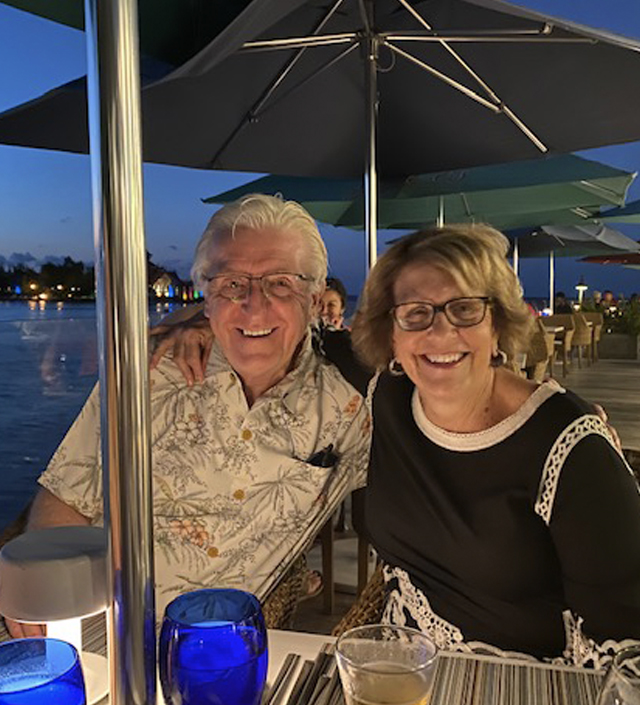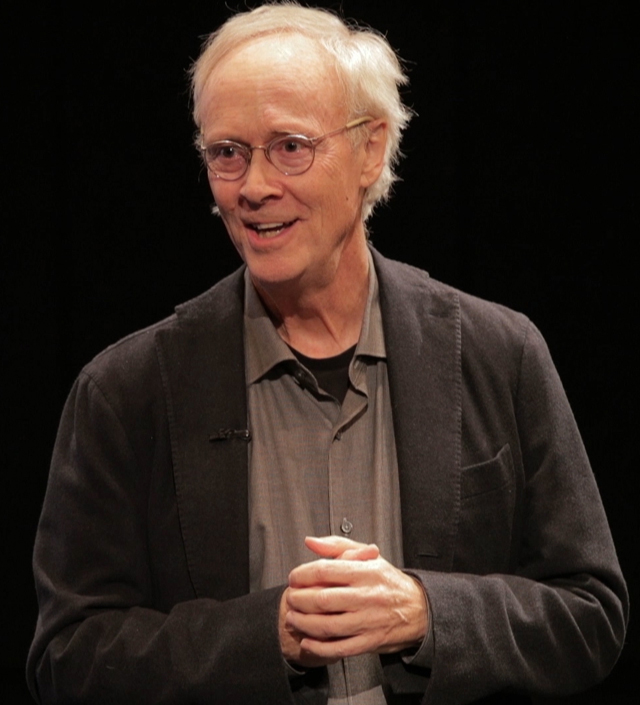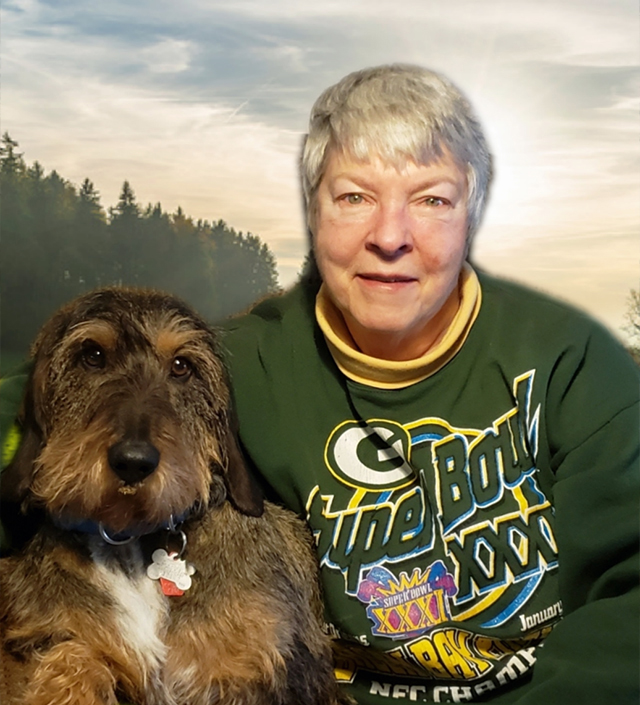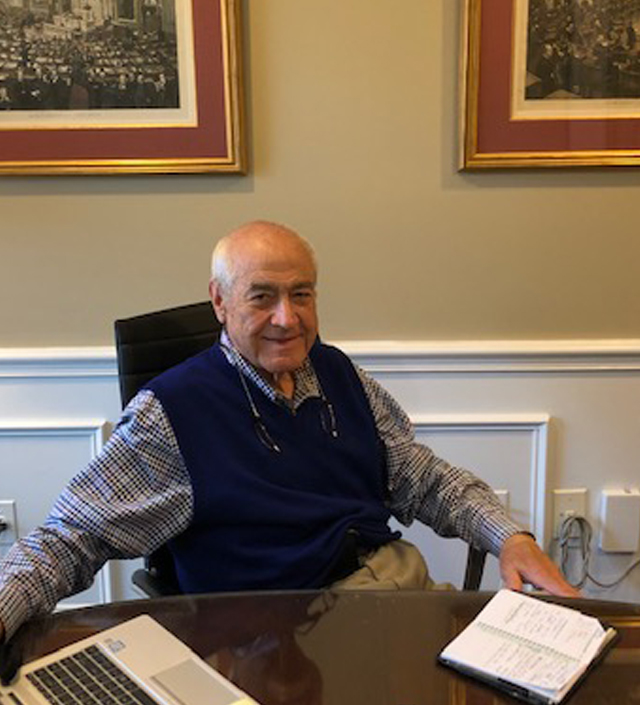Editor’s Note: This article is part of a series Rethinking65 is doing on older advisors who are continuing to work. You may also be interested in reading our articles on Don Rembert and Dick Wendin (both 82), June Schroeder (74) and Minoti Rajput (70). Want to suggest an advisor for the series? Contact Editorial Director Jerilyn Klein.
Financial planner Paul Tully was a young advisor with E.F. Hutton back in the 1970s when it ran its iconic “When E.F. Hutton talks, people listen” television ads. At 71, he’s still talking to clients and they’re still listening.
Tully founded Eagle Wealth Strategies, a financial planning firm in West Deptford, N.J., shortly after Shearson Lehman’s $1 billion takeover of E.F. Hutton in 1988. That in itself would’ve been a big enough challenge, but at the same time he was also busy co-founding a community bank.
“It was just one of those balancing acts,” says Tully, CFP, RICP. He’d made a commitment to his partners in the bank startup and “You can’t very well say, ‘Sorry guys, I can’t be there,’” he says. “In terms of financial services, I was the guy that had the most experience and knowledge.”
As vice chairman of The Bank of Gloucester County, he served on its loan and investment committees and was involved in selecting branch sites as the entity expanded. And simultaneously wearing his banking and advisory hats turned out to be a good fit.
“People would see you in a restaurant or a country club and say, ‘Hey I want to talk to you.’ Whether they even would have known who I was before we formed the bank, that’s questionable,” he says. “So, although I put a ton of time into that bank, it really did help grow our practice.”
Fulton Bank purchased The Bank of Gloucester County in the mid-1990s and Tully remained on its board until 2014.
The Benefits of Life Experience
Tully slowly transitioned Eagle Wealth Strategies to one of his three sons, Christopher, who now owns and runs the firm. It offers investment advisory services through Raymond James Financial Services Advisors. Tully has settled into the role of senior advisor and still retains about a third of the clients, he says.
“You do get to a level, and hopefully always I’ve somewhat been at this level, that you don’t want to just do this to make a living. You really do want to make a difference in the people you’re dealing with.”
Tully doesn’t see his age as a liability. “I’ve dealt now with two and three generations of the same families, through businesses, through divorces, problems with kids, problems with businesses,” he says. “And I think as a result of that, I’ve got good business experience but maybe even better life experience, to be able to empathize with someone’s situation.”
“I’ve not really thought about retiring,” he adds. “I’m enjoying that I’ve got a little bit more diversity of duties or initiatives, than I did for a good bit of my career. I still work a lot of hours but many of them are now reading and research, and fewer of them are getting in my car and driving a couple hours to go meet somebody.” He still attends meetings when clients want him to, “which is a bit of an ego boost,” he says. “You know, they haven’t written me off yet!”
One thing he spends a lot of time researching is best practices, he says, in terms of the business and some of the investments. He also gives much thought to how to better serve older clients.
Seventy — and 90 – Are No Longer ‘Ancient’
When Tully first started in the industry, in his early 20s, “people my age today were ancient!” he says. “I don’t think anybody in their 90s was about to trust their financial future to some guy in his 20s — but I didn’t run into people in that age group at all.”
These days, he has plenty of clients in their 90s, he says. One couple, now deceased, lived to 100. “When we got them, they were 96-years-old, and they came to us through their children,” he says. He now plans for clients to live to 100.
The longevity piece is much different in multiple ways compared with early in his career, he says. Not only are people living longer, it’s become harder to find income because interest rates have remained so low for years. Family dynamics have changed, too, he notes.
The head of longevity at the Cleveland Clinic thinks longevity is going to increase more in this decade than in any decade in American history, says Tully. “There’s just stuff in the pipeline or in various stages of testing that is going to dramatically change how long people live,” says Tully. “I think that presents a ton of challenges but also a lot of opportunities.”
Some of his older clients have continued to practice medicine and accounting. He’s known people who’ve worked into their 80s, and expects to see more of this. Although technology is eliminating some jobs and there are multiple generations of younger workers, it’s becoming more common to see older people “at the top of their game” who aren’t retiring, says Tully. Yet many other older people aren’t in good shape, he says, which has introduced a whole new planning dynamic.
More Planning Needed
“Long-term care was [largely] unheard of a couple generations ago because frankly nobody was really living long enough to require it, and the world was different,” says Tully. For example, “when I was a kid, nobody’s mom worked, at least in my community,” he says, so a daughter would take care of her sick or elderly parents. “Well, today the daughter’s an attorney or publisher and living in Seattle,” he says, so more financial and logistical planning is required.
Then there’s the investment piece. Back in 1980, risk-averse investors could make 11% interest with zero risk at the bank, or $110,000 on a $1 million portfolio, he says. “Today you’re making under $10,000 on the same million bucks,” he says. [However, inflation was 13.5% in 1980.] And even if a client travels less during the last third of their life, healthcare, homecare and other help around the house are expensive.
Furthermore, “I think the days of the stock market doing 10, 12, 15% a year — we’ve had a pretty good run now since 2008 — are not normal,” says Tully “What’s normal might be half the return that we’ve had in the last 13 years.”
The Power of Communication
Tully isn’t one to hit the panic button and he has had good practice riding the economic cycles over his decades in the business. He also spends a lot of time writing articles for his firm’s newsletter. Tully took to writing in 2008, during the during the Great Recession.
“The world, at that point looked like it might come to a screeching halt,” says Tully, then 58. Although he didn’t know what was going to happen, he decided to take action and step up his communications with clients and prospects. “The downside was worse: Hiding under your desk.”
“I would write all weekend long. With every source I could find. I wasn’t panicking, but I was trying to grab every bit of information to calm down,” he says. “I think my family thought I was a little nuts.” He sent his newsletter to hundreds of people (“I do remember stuffing the envelopes — I signed every one of them because I didn’t want a preprinted signature.”), although he didn’t know who would open them.
“That turned out to have been the right path,” says Tully. “I wouldn’t say they were lined up outside our door, but we got significant new clients at a time where I think other people were just literally frozen in place.”
He also discovered he enjoyed writing and receive pretty good feedback from clients who said things like, “Thank you, I’ve been scared to death and you calmed me down,” he says.
Finding Balance
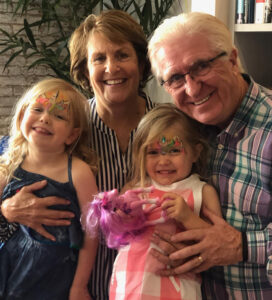
“And all of a sudden 13 years went by, and business went from $115 million to over $500 million and now we’ve got all these clients,” says Tully. “I don’t want to give that up, but I also realize you can’t look people in the eye — 500 families — and say, ‘I’m your guy.’ So, we’ve brought in a number of really smart people.” Many of them are millennials.
In addition, at a certain age, “I think you get to a point where somebody says, ‘Hey I don’t see anybody behind you. What’s going to happen to me when something happens to you?’ So, I think today it’s much more important to be part of a somewhat multi-disciplined team.”
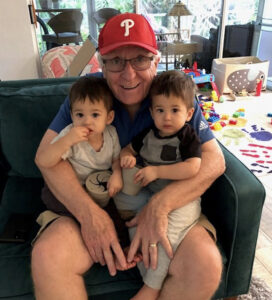
Several members of Eagle Wealth Strategies’ team of ten hail from Rowan University, Tully’s alma mater. He currently serves on the university’s foundation board. For the past couple decades, he’s been involved with philanthropic ventures — which he says has been a good way for him to find balance. He and his wife, Kathy, also enjoy spending time with their four grandchildren.
He’s also had the benefit of observing other people’s retirement paths.
“There are some in business that have remained there who probably shouldn’t have done it, as long as they did. Not because they were ineffective — they were kind of bored with it, didn’t know anything else to do so just kept charging ahead with a successful business,” he says. “I do not want to end up there.”
Lessons Learned and Shared
What advice would Tully give to younger advisors? “That really is a good question,” he says. As a younger advisor, “people have to be convinced you know what you’re taking about. And in some cases, that can be really complicated because you’re trying to impress them,” he says. “Now that I’m older, I try and simplify it.”
“‘I’m the quarterback’ is another overused phrase in our field,” he says, but advisors have the opportunity to see a lot of moving parts and can learn from them. “I’ve been doing this 45 years. It’s not like I’m a genius; it’s just that you pick up a lot of knowledge and warts and everything else over a long career.”
In one of his recent newsletter articles, Tully shared that Kathy suffered an aortic dissection aneurism (“something we had never heard of”) several months earlier while out shopping. She underwent a seven-hour lifesaving heart surgery, upon being airlifted to a second hospital, and is expected to fully recover.
In addition to expressing gratitude for the training and teamwork of all involved in her care, “What I learned from this experience is ‘all that matters’ and maybe, ‘all that really doesn’t matter very much,’ which unfortunately occupies a lot of our daily lives,” he wrote. “Lessons learned should be lessons shared.”
Below the article, he included an observation that is also worth sharing: “Clients today are no different (just wealthier and older) than when I started in 1975. They are looking for holistic, understandable, trustworthy guidance without conflict.”
Jerilyn Klein is editorial director of Rethinking65.



